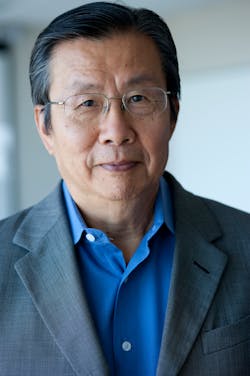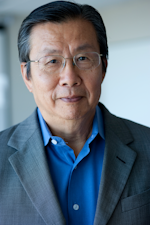
I came across an interesting article in Fortune magazine titled “Big On Manufacturing Renaissance” (Mar. 18, 2013, p. 100). It is an interview with David Farr, who has been the CEO of Emerson Electric since 2000—succeeding Chuck Knight, who is considered a notable management sage. I agree with most of what he said and would like to pass on the message in part because it is very different from the prevailing negative vibe in some circles.
To paraphrase the interview, Farr felt that the basis of the renaissance is most successful companies in manufacturing have globalized their business, and now what we have left in the US are high-end technology-based jobs. We have undergone a transformation in the United States since the mid-1980s, since the Japanese came after us. Facilities are more technically oriented and there is more automation. Our manufacturers have learned how to be globally competitive. And where we are sitting today is the best view we’ve had in a long, long time.
He then went on to say our biggest challenge and threat to growth in manufacturing is a lack of highly skilled technology-apt workers. We need more trained people who are willing to work on the factory floor. We should be funding more technical schools so that the US is not only engineering the technical base to run factories. That resonates with me, and I would like to add that we must also make manufacturing jobs a more attractive career.
Farr described the transformative move he made by selling the electric motor business, which is Emerson’s founding business. He did so because the business no longer could generate the growth, returns, or cash that he needed to make sure the company stayed competitive and viable. He felt that the US can be a strong global player by playing to our collective strengths: entrepreneurship, education, and the natural resources we have. He pointed out our people have historically been hard working. We are smart. We want to get an education, and we’re very innovative. We can rebuild that entrepreneurial spirit and continue to be one of the global players.
He ended the interview by emphasizing two things a CEO must do. One: Develop the best people. Never compromise on people. Two: Do not be afraid of taking on challenges that are far beyond what you think you can handle. Take on that risk. Do it!
How can the photonics industry benefit from Farr’s message? We as a group must work together to find ways to transform the photonics industry (a timely topic being addressed by the committees that are formulating the National Photonics Initiative, a recommendation that came out of the National Academies’ report). We are making strides in technology, but the business of photonics is dismal. The biggest and most visible photonics players are in telecom and solar. Many of these are giant, billion-dollar companies that exhibit a nominal growth rate and paper-thin margins, and they are losing money quarter after quarter. How can this kind of business attract investment capital to fuel or even sustain healthy growth? Struggling, unprofitable companies will be wiped out eventually.
The management of these companies must wake up to make big, courageous transformative moves like David Farr did to gut businesses that no longer make sense, shrink to the core, and (re) invent themselves by building on their strengths and core competencies to come out stronger. Getting squeezed on pricing because products offer little or no compelling competitive advantage, then turning around to squeeze fellow photonics companies in the supply chain for sure is no way to build a strong, sustainable industry. Companies have to focus on innovation, manufacturing competencies, and operational efficiency because customers demand both performance and price. Healthy, profitable photonics companies make a strong photonics market. That is good for the photonics industry and so it is good for the industries we serve. Doing the right thing is the right thing to do—do it!

Milton Chang
MILTON CHANG of Incubic Management was president of Newport and New Focus. He is currently director of mBio Diagnostics and Aurrion; a trustee of Caltech; a member of the SEC Advisory Committee on Small and Emerging Companies; and serves on advisory boards and mentors entrepreneurs. Chang is a Fellow of IEEE, OSA, and LIA. Direct your business, management, and career questions to him at [email protected], and check out his book Toward Entrepreneurship at www.miltonchang.com.